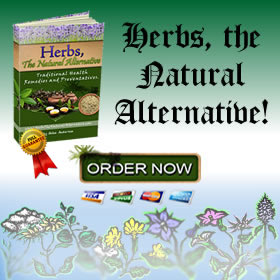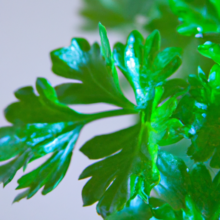Dandelion Delights: Uncovering The Health Benefits Hidden In Your Yard
Imagine stepping out into your backyard and discovering a treasure trove of health benefits right at your fingertips. That’s exactly what you’ll find with dandelions, those vibrant yellow flowers that you may have overlooked in the past. Beyond their cheerful appearance, dandelions are packed with a surprising range of nutrients and medicinal properties that can support your overall well-being. From boosting your immune system to aiding digestion, these backyard wonders are just waiting to be embraced for their delightful and unexpected health benefits. So, why not take a closer look at those dandelions in your yard and unlock the secrets they hold for a healthier, happier you?
The History of Dandelions
Origins of Dandelions
Dandelions, scientifically known as Taraxacum officinale, are perennial flowering plants that belong to the daisy family. They are native to Europe and Asia, but they have naturalized and spread across North America and other parts of the world. These yellow-flowered plants have a long and fascinating history that dates back centuries.
Uses of Dandelions throughout History
Dandelions have been used for various purposes throughout history, both for culinary and medicinal reasons. In ancient times, the Greeks and Romans utilized dandelions for their therapeutic properties. The Chinese also recognized the value of dandelions and used them in traditional medicine.
During the Middle Ages, dandelions were cultivated in monastic gardens for medicinal purposes. They were considered helpful in treating ailments such as digestive issues, liver problems, and skin conditions. In addition to their medicinal uses, dandelions were also used as a food source. The leaves were consumed in salads, and the roots were roasted and used as a coffee substitute.
Nutritional Value of Dandelions
Vitamins and Minerals in Dandelions
Dandelions are packed with essential vitamins and minerals that contribute to a healthy diet. They are an excellent source of vitamin A, vitamin C, vitamin K, and vitamin E. These vitamins play a crucial role in supporting various bodily functions, including immune function, cell growth, and vision health.
In addition to vitamins, dandelions also contain minerals such as calcium, iron, potassium, and magnesium. These minerals are necessary for maintaining strong bones, proper muscle function, and overall well-being.
Antioxidants in Dandelions
Dandelions are rich in antioxidants, which are compounds that help protect the body against damage caused by harmful free radicals. The antioxidants present in dandelions, such as beta-carotene and luteolin, have been linked to a reduced risk of chronic diseases like heart disease and cancer.
These antioxidants also help combat inflammation in the body, which is a significant factor in the development of various health conditions. Including dandelions in your diet can provide a powerful dose of antioxidants to support your overall health.
Health Benefits of Dandelions
Supports Digestive Health
Dandelions have long been used as a natural remedy for digestive issues. The bitter compounds found in dandelions, such as taraxacin, stimulate the production of digestive juices and enhance liver function. This can aid in digestion, reduce bloating, and alleviate constipation.
Boosts the Immune System
The high vitamin C content in dandelions helps support a healthy immune system. Vitamin C is known for its immune-boosting properties, as it helps stimulate the production of white blood cells, which are essential for fighting off infections and diseases.
Aids Weight Loss
Dandelions are low in calories and high in fiber, making them an excellent addition to a weight loss diet. The fiber content helps promote feelings of fullness, which can prevent overeating. Additionally, dandelions have diuretic properties, which can reduce water retention and bloating.
Improves Liver Function
Dandelions have long been known for their liver-cleansing abilities. The compounds found in dandelions help promote bile production and improve liver function, which aids in the detoxification process. By supporting a healthy liver, dandelions can contribute to overall well-being.
Promotes Healthy Skin
The antioxidants and vitamin C in dandelions play a vital role in maintaining healthy skin. These compounds help combat free radicals, reduce inflammation, and promote collagen production, which keeps the skin looking youthful and radiant.
Reduces Inflammation
Inflammation in the body can contribute to chronic diseases, such as heart disease, arthritis, and diabetes. Dandelions contain anti-inflammatory compounds that can help reduce inflammation and lower the risk of developing these conditions.
Lowers Blood Pressure
Some studies suggest that dandelions may have a positive effect on blood pressure levels. The diuretic properties of dandelions help remove excess sodium from the body, which can help lower blood pressure. However, further research is needed to fully understand the impact of dandelions on blood pressure.
Regulates Blood Sugar Levels
Research has shown that dandelions may have a beneficial effect on blood sugar control. Certain compounds in dandelions can improve insulin sensitivity and help regulate blood sugar levels. This can be particularly beneficial for individuals with diabetes or those at risk of developing the condition.
Culinary Uses of Dandelions
Dandelion Greens in Salads and Stir-Fries
Dandelion greens can add a unique and vibrant flavor to salads and stir-fries. The young leaves of dandelions are the most tender and flavorful. They have a slightly bitter taste that pairs well with other ingredients like citrus fruits, goat cheese, and nuts. Including dandelion greens in your culinary creations not only adds flavor but also provides a nutritious boost.
Dandelion Flower Recipes
Dandelion flowers can be a delightful addition to various recipes. They can be used to make dandelion fritters, where the flowers are dipped in batter and fried until crispy. Dandelion flowers can also be infused into honey or turned into a syrup for pancakes and desserts. Their bright yellow color and delicate flavor make them a fun and unique ingredient to experiment with in the kitchen.
Dandelion Root Coffee and Tea
The roots of dandelions can be roasted and ground to make a coffee substitute. Dandelion root coffee has gained popularity as a caffeine-free alternative, with a similar taste profile to traditional coffee. Dandelion root tea is also a popular choice for those looking to enjoy the health benefits of dandelions in a warm and soothing beverage.
Traditional and Medicinal Uses of Dandelions
Detoxification and Cleansing Properties
Dandelions have long been used in traditional medicine for their detoxifying and cleansing properties. They are believed to support the liver and kidneys in eliminating toxins from the body. Dandelion root tea or dandelion leaf tea can be consumed as part of a cleansing regimen.
Diuretic and Digestive Aid
Dandelions have diuretic properties, meaning they can promote increased urine production. This can be helpful for individuals with water retention or urinary tract issues. Additionally, dandelions can aid in digestion by stimulating the production of digestive juices and promoting healthy bowel movements.
Treatment for Skin Conditions
Topical applications of dandelion extract or dandelion salve have been used to treat various skin conditions. The anti-inflammatory and antimicrobial properties of dandelions can help alleviate symptoms of eczema, acne, and other skin irritations.
Management of Diabetes
As mentioned earlier, dandelions may have a positive effect on blood sugar control. Some studies have shown that dandelion extract can help lower blood sugar levels and improve insulin sensitivity. However, it is crucial to consult with a healthcare professional before using dandelions as a complementary treatment for diabetes.
Natural Pain Reliever
Dandelions contain compounds with analgesic properties, which can help alleviate pain and discomfort. The anti-inflammatory properties of dandelions also contribute to their pain-relieving effects. Dandelion-based ointments or salves can be applied topically to areas experiencing pain or inflammation.
Harvesting and Preparing Dandelions
Identifying and Harvesting Dandelions
Dandelions are easily recognizable by their bright yellow flowers and characteristic fluffy seed heads. They can be found in lawns, meadows, and even cracks in pavement. When harvesting dandelions, it is important to choose plants from pesticide-free areas to avoid any potential chemical contamination.
To harvest dandelions, simply pluck the leaves or flowers close to the base of the plant. If you are harvesting the roots, use a trowel or small shovel to carefully dig them up. Make sure to collect dandelions that are young and healthy-looking for the best flavor and nutritional value.
Cleaning and Storing Dandelions
Before consuming dandelions, it is essential to clean them thoroughly to remove any dirt or insects. Rinse the leaves, flowers, or roots under cool running water and gently pat them dry.
Dandelion leaves can be stored in a plastic bag or airtight container in the refrigerator for up to a week. To extend their shelf life, you can also blanch the leaves by briefly immersing them in boiling water, then transferring them to an ice bath to stop the cooking process.
Dandelion flowers can be stored in a cool, dry place for several days or used immediately for culinary purposes. Dandelion roots should be washed, dried, and stored in a cool, dark place like a root cellar or pantry.
Precautions and Considerations
Potential Allergies and Medication Interactions
While dandelions are generally safe for consumption, some individuals may have allergies to dandelion pollen or other parts of the plant. If you have known allergies to other plants in the same family as dandelions, such as ragweed or chamomile, exercise caution when consuming dandelions.
Additionally, dandelions may interact with certain medications, particularly diuretics or blood thinners. If you are taking any medications, consult with your healthcare provider before adding dandelions to your diet or using them for medicinal purposes.
Harvesting from Pesticide-Free Areas
To ensure the safety and quality of your dandelions, it is advisable to harvest them from pesticide-free areas. Pesticides can be harmful to your health, so it is best to choose organic or chemical-free locations.
One option is to grow your own dandelions in a pesticide-free garden or container. This gives you complete control over the growing environment and ensures you are consuming dandelions free from chemical contaminants.
Moderate Consumption for Certain Conditions
While dandelions offer numerous health benefits, individuals with certain conditions should consume them in moderation or consult with a healthcare professional. Those with gallbladder issues, kidney stones, or certain digestive disorders may need to limit their intake of dandelions due to their diuretic and stimulant effects.
Pregnant or breastfeeding women should also exercise caution and seek medical advice before incorporating dandelions into their diet or using them medicinally.
Making Dandelions a Part of Your Lifestyle
Using Dandelions in Everyday Cooking
Incorporating dandelions into your everyday cooking can be a fun and creative way to enjoy their unique flavors and nutritional benefits. Try adding dandelion greens to salads, sautéing them with garlic and olive oil, or blending them into a nutritious smoothie.
Experiment with using dandelion flowers in baked goods, such as muffins or scones, or infusing them into vinegar or oil for a flavorful dressing or marinade. The possibilities are endless when it comes to incorporating dandelions into your meals.
Incorporating Dandelions into Herbal Remedies
Dandelions have a long history of use in traditional medicine, and you can harness their therapeutic properties by incorporating them into homemade herbal remedies. Dandelion root tea or dandelion leaf tea can be brewed and enjoyed as a soothing beverage.
For topical use, you can create a dandelion-infused oil or salve by steeping dandelion flowers or leaves in carrier oils like olive oil or coconut oil. This can be used as a natural moisturizer, soothing cream, or massage oil.
Experimenting with Dandelion Products
If you’re not keen on foraging for dandelions or preparing them yourself, there are various dandelion-based products available in the market. These range from dandelion supplements and extracts to herbal teas and skincare products.
When purchasing dandelion products, look for reputable brands that source their ingredients sustainably and ensure high-quality standards.
Dandelion Crafts and DIYs
Dandelion Flower Crowns
Dandelion flower crowns are a whimsical and enchanting craft that can be enjoyed by people of all ages. Gather dandelion flowers with intact stems and carefully thread them together to create a crown. Wear it as a unique accessory or gift it to someone special.
Dandelion Art and Jewelry
Dandelions can also be used as artistic inspiration. Pressed dandelion flowers and leaves can be used to create beautiful pieces of art, such as bookmarks or framed artwork. Dandelion seeds can be encapsulated in resin to make unique jewelry pieces like earrings or pendants.
Dandelion Home Decor Projects
Bring a touch of nature into your home with dandelion-themed home decor projects. Create a dandelion-inspired wreath using dried flowers and twigs, or make a rustic dandelion bouquet to display in a vase. These DIY projects can add a whimsical and organic aesthetic to any living space.
Conclusion
Dandelions may be commonly viewed as pesky weeds, but their rich history, nutritional value, and numerous health benefits make them truly a hidden gem in our yards. From supporting digestive health and boosting the immune system to providing culinary delights and serving as traditional medicine, dandelions offer a wide range of applications.
Whether you choose to consume dandelions in your everyday cooking, incorporate them into herbal remedies, or indulge in dandelion-inspired crafts, these vibrant and versatile plants can enhance your lifestyle. Embrace the wonders of dandelions and discover the delight in their many uses and benefits.




